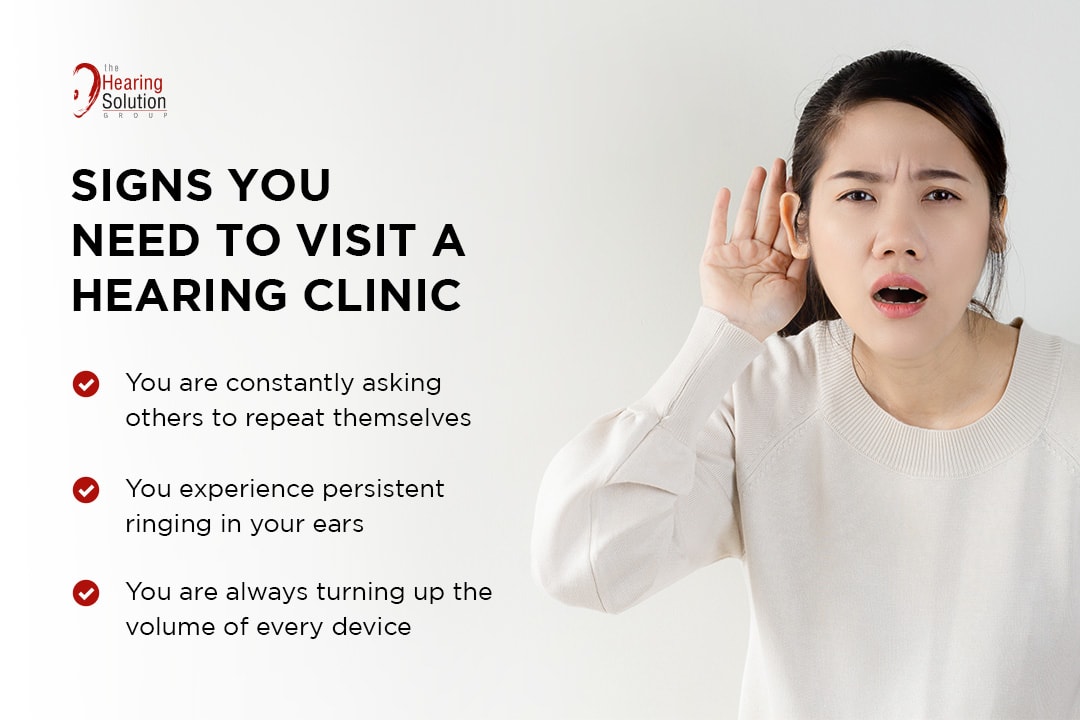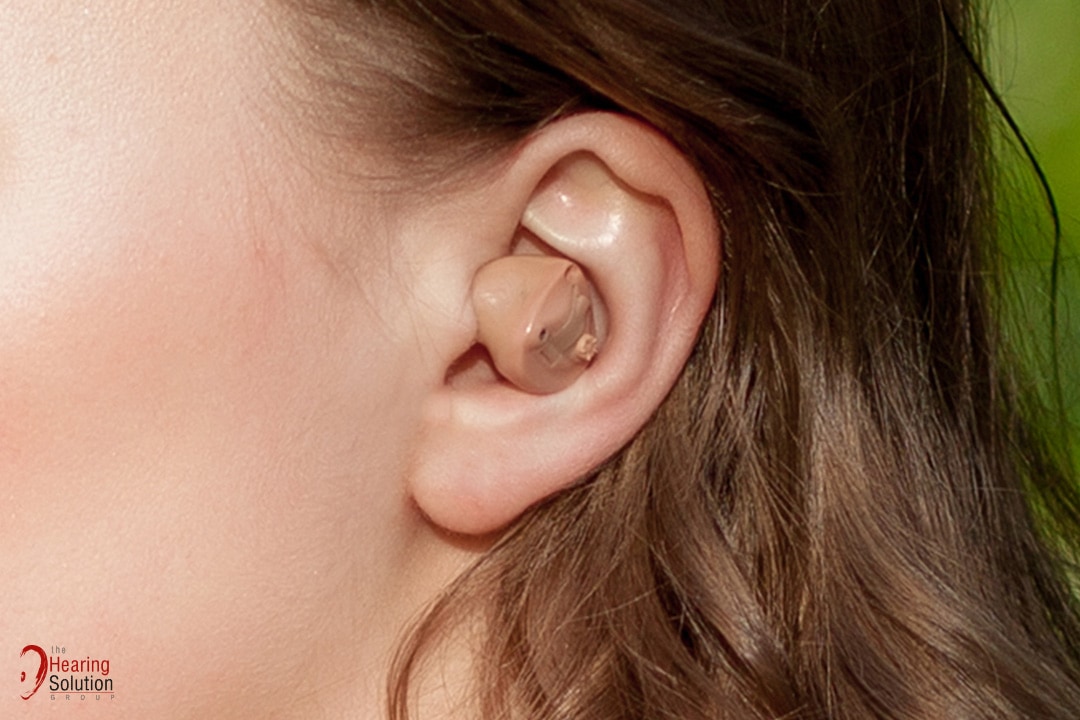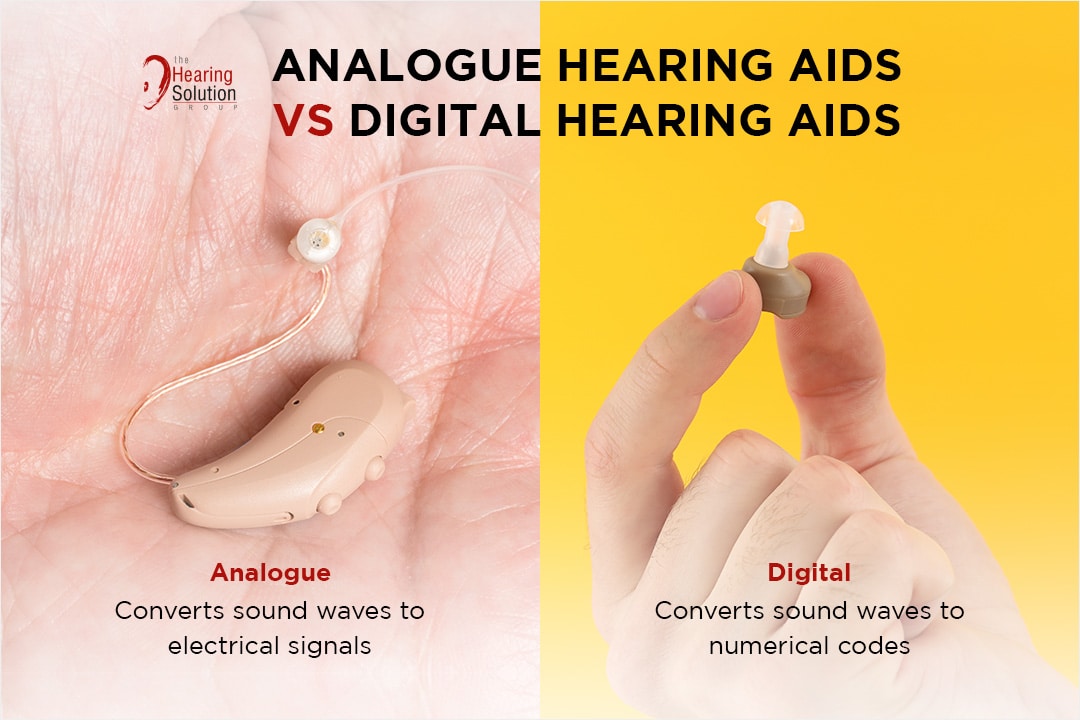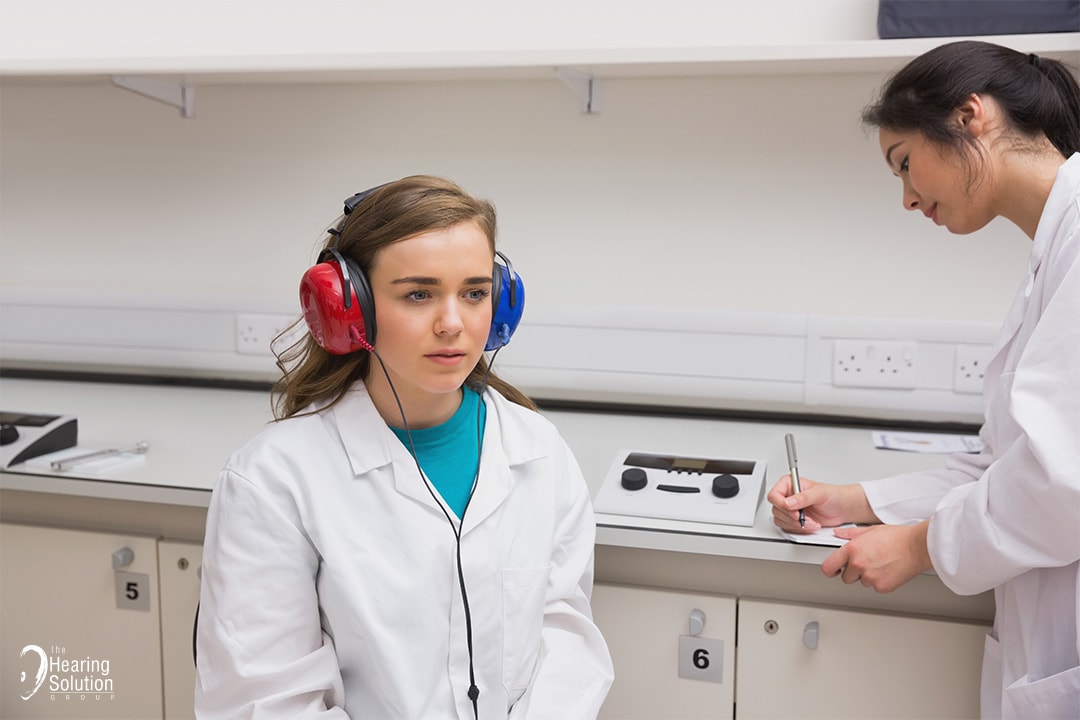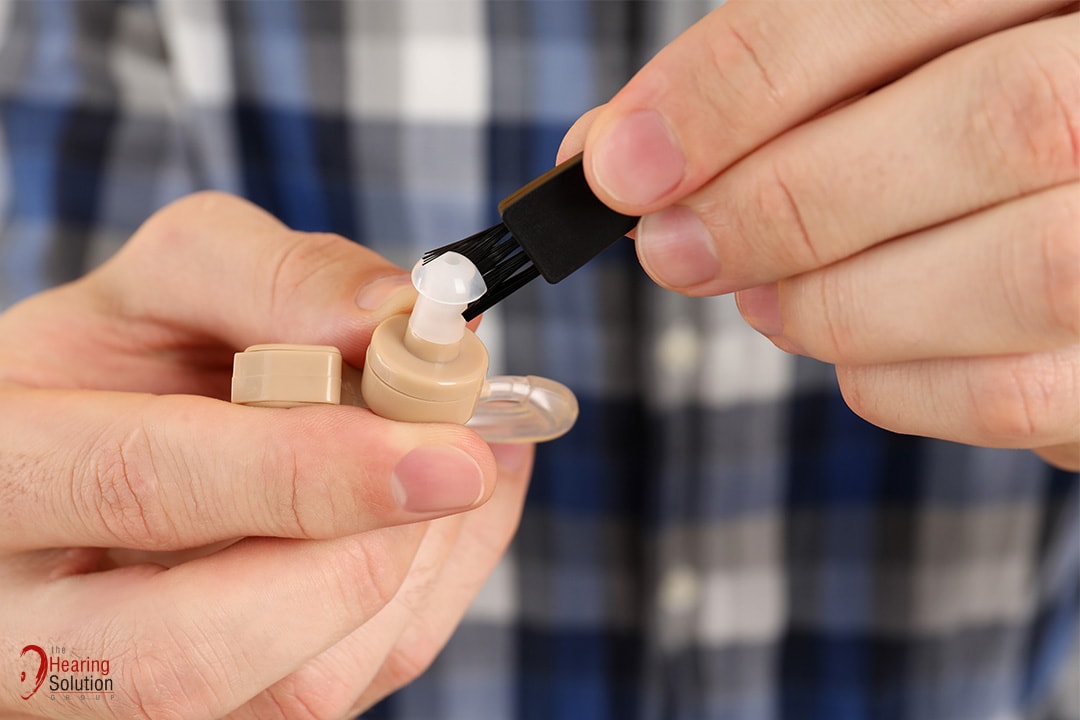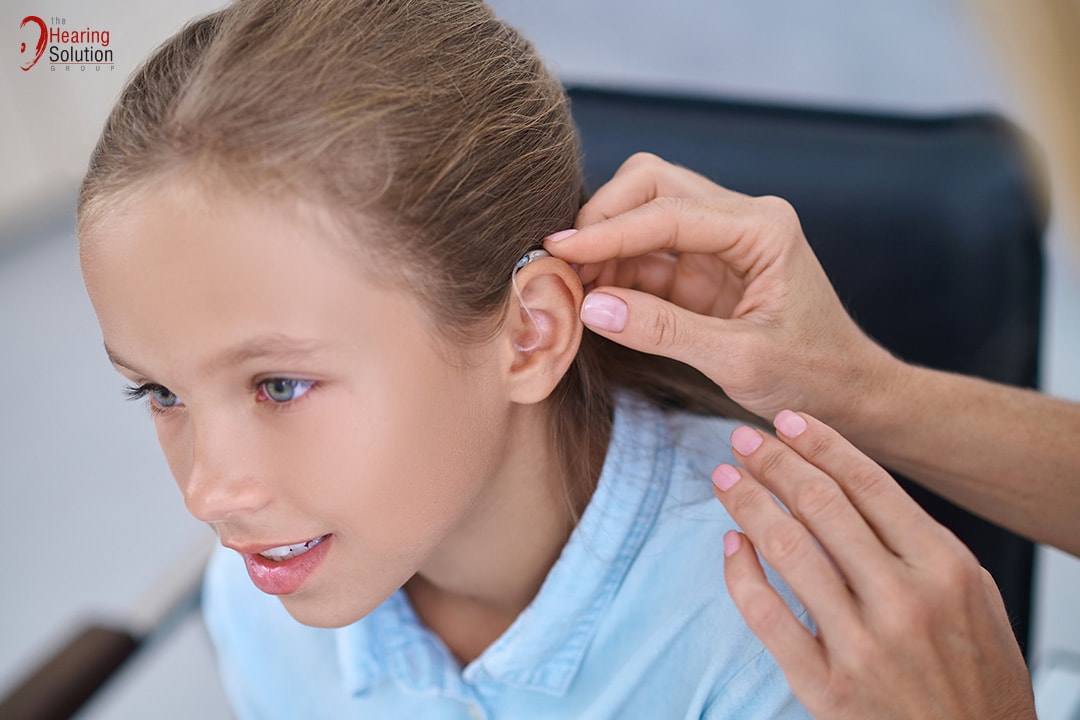
Next to eyesight, our hearing is perhaps the next most important of our five senses. It is an important element for survival, alerting us of dangers or circumstances before we may even see or realise them. Being able to hear gives us the ability to communicate, socialise, and be more alert of our surroundings.
Although many of us know that hearing impairment will lead to a decrease in our quality of life, we continue to take our hearing for granted, only realising the value of healthy hearing when we suffer from hearing problems. How important is healthy hearing and what will happen if we do not take good care of our ears?
#1. Independence and Security
Healthy hearing keeps us aware of our surroundings and helps us to stay safe even when we are travelling alone. From the ringing of our phone to the sound of vehicles, knowing what is going on around us allows us to quickly get out of harm’s way without the assistance of another.
Hearing is also essential for most jobs in the world, granting you job security. Losing your hearing may lead to reduced work productivity and even retrenchment.
#2. Building Connections and Relationships
Communication is the foundation of all relationships and good hearing helps to keep you relevant in social situations. Poor hearing health hinders your ability to understand what the people around you are saying. This results in you missing out on conversations and the opportunities to participate in and experience many of life’s cherished moments, such as chiming in during meaningful conversations with your family and friends, listening to your favourite music, or hearing a loved one’s voice or laughter. This may lead to social isolation, depression, or other mental health issues.
#3. Better Brain Functioning
Being able to hear keeps our brain active because it forces our brain to process and translate the impulses into sounds that we know and understand. When sound waves travel from our outer ear into the inner ear, the vibrations stimulate thousands of tiny hair cells which then send electrical signals to the auditory cortex. Our brain then works to identify the sounds and filter out unwanted noise to help us focus on what we are listening to.
Hearing loss causes our brain to lose its ability to process sound. The parts of our brain that are responsible for auditory processing changes how it operates, switching to other tasks such as visual processing. These parts may then shrink and make it challenging for you to process and hear sounds normally again even with hearing aids. Additionally, a study conducted in 2011 said that adults with hearing loss are “significantly more likely to develop dementia” over time than those who have healthy hearing. This demonstrates the importance of healthy hearing.
Signs you or a Loved one may Need to Visit a Hearing Clinic
Hearing loss can happen to anyone, but most people do not realise that they are suffering from it. The symptoms may differ from person to person, and they can be different from what we believe deafness to be. Individuals suffering from milder forms of hearing loss may be unaware of this problem, letting it affect their lives and allowing it to worsen. If you notice these changes in behaviour, or signs and symptoms of hearing loss, do schedule a consultation with an audiologist at a hearing clinic to get your ears checked.
Sign 1: Constantly asking others to repeat themselves
Is someone around you or are you constantly getting others to repeat themselves during a conversation? If you find yourself having difficulty keeping up with conversations or struggling to hear what people are saying, you may be experiencing some form of hearing loss.
Sign 2: Persistent ringing in ears
Also known as tinnitus, persistent ringing in your ears is a condition caused by problems in your auditory system. It can cause whirring, buzzing or whooshing noises that are disruptive and uncomfortable. Although tinnitus can be a temporary condition you experience after being exposed to loud noises, it can also be a permanent condition that requires treatment. An audiologist may recommend a hearing device to help relieve and reduce the symptoms.
Sign 3: Turning up the volume
Do you find yourself having trouble listening to your music or the conversations on a television show? Do you have to turn up the volume of what you’re listening to? If you struggle to hear but your family members are complaining about the loud sounds, you may be suffering from hearing loss. You will need to visit an audiologist at a hearing clinic.
A DEEP DIVE INTO HEARING AIDS AND HEARING CENTRES
What Makes a Good Audiologist/Hearing Care Consultant?
You will need to see a qualified audiologist or hearing care consultant should you require help managing your hearing loss. The best hearing care consultants can empower a more seamless, enjoyable and effective process. However, with the amount of audiologists in Singapore, how do you know if you’re seeing the right person? Here are some traits you should keep a lookout for.
Trait 1: Professionalism
Every healthcare professional has the knowledge and expertise to treat patients in their field. However, knowledge alone is not enough if they cannot communicate their thoughts and information to you properly. An audiologist must be able to explain complex conditions, treatments and hearing solutions to you in a manner that you can understand. This minimises misunderstandings, miscommunication and makes you feel more secure. They should also have great problem-solving skills to effectively figure out the answers to your issues.
Additionally, a professional audiologist will be patient and careful with you, yet efficient enough to evaluate every patient without letting anyone wait too long. This excellent time management skill is a reflection of their ability to think fast and provide the best solutions for you.
Trait 2: Compassionate
Patience and empathy is a requirement if one wishes to work in the healthcare industry. Taking the time to attend to each patient and treating you to the best of their abilities without losing their patience or rushing you through any procedures establishes compassion for their patient’s wellbeing.
Trait 3: Patient-centric
Does the audiologist place the patient’s wellbeing over their own business needs or do they simply want to rush through the job? A patient-centric audiologist should be able to provide holistic solutions to their patients and the patients’ families, guiding them through the steps they need to take to properly manage their hearing loss journey. It is important to work with someone who doesn’t simply focus on getting the job done, but instead, has a friendly and empathetic disposition that shows they truly care about your hearing health.
Common Myths about Hearing Aids
The most common hearing solution you will receive at a hearing centre is a hearing aid. Not only do hearing aids help with hearing loss but their continuous improvement in technology further enhances the hearing experience. However, some may still be hesitant over whether they are truly helpful. The truth is, modern hearing aids are highly effective and very comfortable to wear despite the misconceptions surrounding them. We debunk some myths you may have heard.
Myth 1: Hearing aids are not functional
Many are under the misconception that hearing loss is caused by “nerve loss’, which cannot be resolved. Due to this, they assume that hearing aids are simply accessories that fail in function. That is far from the truth. Advanced digital technology allows the majority of patients with sensori-neural hearing loss to experience improved communication with hearing aids. They are also engineered to amplify sounds such that one can hear them with more clarity.
Myth 2: Hearing aids are big and ugly
Modern hearing aids are available in smaller and less visible solutions that can even be worn inside the ear. Hearing aids like the Evolv AI offer different styles such as the completely-in-canal (CIC), invisible-in-canal (IIC) and behind-the-ear (BTE) options that are entirely or nearly invisible. They do not affect your appearance and are also comfortable to wear.
Myth 3: The sound quality of hearing aids are bad
In the past, analogue hearing aids were loud and difficult to hear with, because they amplified all sounds equally, no matter the frequency or volume. However, digital signal processing today makes it possible for hearing aids to be tailored and adjusted to meet individual listening needs and situations. For example, the Evolv AI lets you easily control your hearing aid from your phone, adjusting settings and volumes in different situations to help you hear even better.
How Do Hearing Aids Work?
These small electronic devices that those with hearing loss wear in or behind their ears help to amplify sounds so that they can listen, communicate, and participate in daily activities normally in all sorts of situations. They work through a three-part system – the microphone, amplifier, and speaker. The microphone receives sound from your surroundings and converts it into a digital signal that is increased by the amplifier. The speaker then produces the amplified sound into the ear.
There are two types of hearing aids available – analogue and digital – and they work very differently.
Analogue Hearing Aids
Sound waves received by analogue hearing aids are converted into electrical signals before being amplified. They are programmed by the manufacturer according to the needs of the individual user and have more than one programme or setting that the audiologist and user can change depending on your listening environment.
Digital Hearing Aids
The sound waves that travel into digital hearing aids are converted into numerical codes similar to a computer’s binary code before amplifying them. The code includes information about a sound’s pitch or loudness, which allows the hearing aid to adjust the sound, amplifying some frequencies more than others. The audiologist will have more flexibility when adjusting the aid to a user’s needs. They can even be programmed to focus on sounds coming from a specific direction.
Common Services Provided by Hearing Clinics
Hearing clinics provide a range of other services to help you through managing and living with your hearing impairment. When it comes to getting through this journey, it is important that you leave yourself in the hands of a hearing clinic that delivers the required services. Afterall, the hearing loss journey is not an easy one and engaging the right clinic can ease your fears and anxiety. These are some of the basic services the hearing clinic you are planning to choose should provide.
#1. Hearing Test
To evaluate the severity of your hearing loss, the hearing centre should conduct a full hearing and central auditory processing evaluation, as well as a comprehensive hearing impact assessment. This will help them better understand your needs and develop a solution for you. If going to the centre for a test is too inconvenient, look for a place that offers online hearing tests.
#2. Consultation and Customisation of Hearing Aids
Hearing aids are useful devices that can help people who have hearing loss listen and converse more effectively. A hearing clinic should be able to do a thorough assessment and understanding of your needs, as well as customising and purchasing hearing aids to ensure that they fulfil your listening requirements.
#3. Hearing Aid Aftercare
Hearing aids must be properly maintained. Look for a hearing centre that offers regular aftercare services. They will help ensure that your devices are in good working condition and that you have all the information you need to fully utilise them. These aftercare services include the cleaning and servicing of your hearing aids, minor programming adjustments, and instruction on how to use your hearing aids and its technology.
#4. Yearly Re-Assessment
You may need another assessment of your hearing and cognitive abilities after a period of using your hearing aids. A yearly reassessment will usually be provided by your hearing centre, serving as a benchmark for determining whether your hearing aids require adjustments.
ACCEPTING HEARING LOSS
How to Care for and Maintain your Hearing Aids
If you or someone you know uses hearing aids, it is essential to know how to properly maintain them so that the devices can continue to function effectively. Hearing aids are simple devices that require little maintenance, but they must be cared for and protected in order to serve its user for a long time, prevent breakdowns and avoid costly repairs. Following these basic care and maintenance instructions can help them perform at their best.
Tip 1: Store in a safe dry place
Hearing aids should be kept in a clean, cool, and dry environment. To prevent moisture from building up in the batteries, put them out in the open with the battery doors open. If your environment is particularly humid, a hearing aid dryer or dehumidifier may be necessary to keep the devices dry. Additionally, you should store them in a secure location away from pets and small children to prevent them from being smashed, damaged, or dropped.
Tip 2: Clean off earwax and replace wax filter regularly
Earwax is necessary for ear health, but it interferes with electronic devices like hearing aids and can potentially reduce their efficiency if it accumulates around them. Your hearing aids will, however, be exposed to earwax on a daily basis. This is why you should clean them with a dry cotton swab or a soft toothbrush at the end of each day, paying special attention to the receiver and microphone.
Hearing aids also have wax filters that protect the device’s internal components from damage. These filters must be replaced on a regular basis. Make sure you have the right type of wax filter for your hearing aids.
Tip 3: Battery care and replacement
Hearing aid batteries must be maintained and replaced on a regular basis because even a small amount of moisture trapped within the device can cause corrosion and damage to the hearing aid’s interior. When you’re not wearing your hearing aids, make sure the battery doors are open and change the batteries when it’s time to do so.
Remove the batteries from your hearing aids if you won’t be using them for a few days to air the battery slots. Additionally, keep the battery contacts clean by wiping them with a dry cotton swab after each usage.
Tip 4: Schedule professional cleanings
Hearing aids should be cleaned professionally every four to six months. This professional cleaning service inspects your hearing aids for any damage, repairs it, adjusts the settings, and thoroughly cleans them to preserve their performance. It’s an important step in keeping your hearing aids in good working order because the pros will know exactly what needs to be done.
Ways to Minimise Deterioration of Hearing Loss
Noise-induced hearing loss is irreversible; there are no medical or surgical methods that can reverse the symptoms of hearing loss since damaged hair cells do not regrow. To protect our hearing, we should take care of our ears as much as possible and be conscious of what we’re listening to and how we’re listening. Here are some things you can do to protect your hearing and/or keep it from getting worse.
Tip 1: Limit smoking and drinking
Cigarette smoke and heavy alcohol consumption can create a toxic environment in the ear, affecting a person’s hearing health significantly. Large amounts of alcohol can harm the auditory cortex of the brain and inner ear cells, lower blood oxygen levels, and increase toxins in the body. The eustachian tube, which connects your middle ear to the back of your throat, might become blocked if you smoke often. This increases the possibility of inner ear injury. Smoking is also connected to changes in blood pressure; high blood pressure puts additional strain on the cells in the ear, causing damage.
Tip 2: Use proper ear protection when necessary
Hearing loss can be prevented using ear protection such as headphones or in-ear foam plugs. They should be worn to protect your ears if you need to enter a noisy or loud place. Long-term exposure to noise above 85 decibels for more than eight hours per day causes gradual hearing loss, and explosive noises exceeding 140 decibels, such as fireworks, can cause immediate damage. Musicians and performers are some people who should be using ear protection to prevent hearing loss.
Tip 3: Visit your audiologist/hearing care consultant regularly
Regular hearing tests keep you informed about your hearing health. If your test reveals that you have some hearing loss, you can begin taking steps to prevent it from deteriorating and explore your hearing aid options.
How Loved Ones Can Provide Support
It’s not easy to live with hearing loss. If you are not experiencing hearing loss but are caring for someone who is, you must understand that the transition from a normal hearing adult to someone who can hardly hear what you are saying will be difficult for them. A loved one’s attention and support can make this experience less frightening.
When caring for someone who has hearing impairment, effective communication is crucial. This can also help your other family members and friends who have normal hearing abilities feel less stressed. Here are some suggestions.
#1. Be patient and understanding
Maintaining a positive attitude and being patient with someone who has hearing loss might help them feel more at ease and less affected by their condition. If you are asked to repeat your sentence several times, do not be offended. Instead, try to figure out how you might improve your communication style to make it easier for people to hear and understand you. For example, moving to a quieter area or speaking into another ear.
Avoid raising your voice or even shouting at them because this could be viewed as disrespectful or angry. To help them, try rephrasing your sentence to offer more context or enunciating your words more clearly.
#2. Reduce background noise while speaking to them
Background noise in public settings interferes with your voice, making communication more difficult. If at all feasible, move to a quieter location to hold a conversation or do everything you can to eliminate background noise. For example, lowering the music volume or getting others to lower their volume.
#3. Non-verbal cues
Non-verbal elements of conversation, such as facial expressions and hand gestures might help us express our message more effectively than words. Consider how your facial expression and body gestures can help contribute to the conversation. Also, pay attention to the listener to determine whether they understand what is being said. If something you have said is met with a confused expression, make an effort to repeat yourself or clarify whether they heard it.
#4. Speak clearly and slowly
While speaking clearly and slowly can help persons with hearing loss hear better, speaking too slowly can make some people feel patronised, resulting in an uncomfortable interaction. However, avoid speaking too quickly or using overly complex words and sentences. Speak clearly and naturally, without using exaggerated facial expressions or lip movements. Take turns speaking and avoid interrupting others so that the listener does not have to struggle to understand what you are saying.
Hearing health is essential for our physical and mental well-being, thus it’s important to look after your ears. Early visits to a hearing centre can help you detect problems before they become irreversible.
A qualified audiologist and a good hearing centre with all of the services you need can make managing your hearing loss a lot easier and more enjoyable.
The Hearing Solutions Group provides a variety of hearing solutions and services in Singapore to assist people on their journey through hearing loss. To learn more, or to schedule a hearing test, contact us today or call us at 63370090!

 Find Us
Find Us Call Us
Call Us
